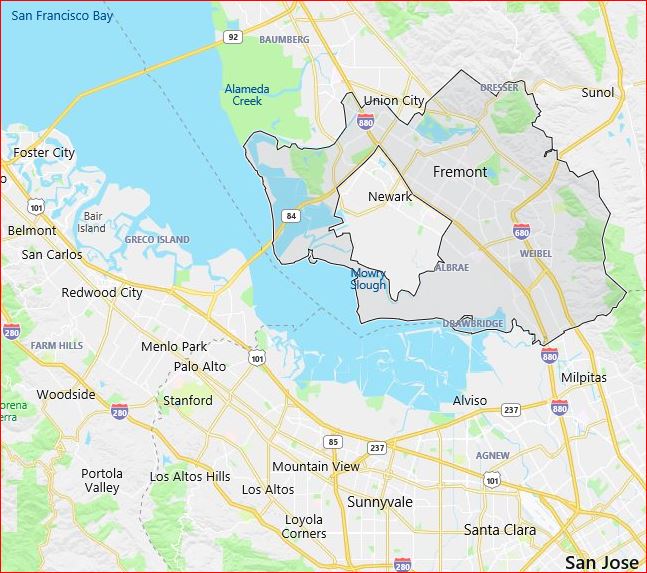Folks, the way I see it, many states are running roughshod over the Constitutional rights granted to us as Christians under the First Amendment. This is especially true in regard to social issues. What I don’t get is where are the attorney groups that claim to represent us? In California, they all seem to have given up hope and just disappeared.
I think the defense for folks like us is very simple. Here’s a thumbnail of how it goes.
The Bill of Rights was added to the Constitution as a necessary condition to insure its passage. Colonists wanted specific assurances that abuses that led to the revolt against Great Britain would not occur under this new government. The Constitution was presented as a framework for a limited national government with enumerated powers—only those things specifically granted by the Constitution were permitted; thus, anything not specifically allowed was off limits to the new government. Representation and the ability to raise revenue were both strengthened when compared to the Articles of Confederation which preceded the Constitution.
The First Amendment acknowledges three areas of freedom: assembly, press, and religion plus the right to ask government to right past wrongs.
Congress shall make no law respecting an establishment of religion, or prohibiting the free exercise thereof; or abridging the freedom of speech, or of the press; or the right of the people peaceably to assemble, and to petition the Government for a redress of grievances.
U.S. Constitution – Amendment 1
I would like to narrow the scope of this post to freedom of religion; however, please note that the restriction is upon Congress not the States or the people. What is forbidden is a top-down mandate of the national government setting up a national church or interfering with a person practicing their religion. At the time of ratification, a majority of states had state sponsored churches.
This arrangement created by the Constitution was in place for about “Four score and seven years…”
Following the Civil War, the nation adopted three Constitutional Amendments. One of these, contains the infamous Interstate Commerce Clause, which was the basis of implementing much of Roosevelt’s New Deal. Lesser known however is that the Civil War Amendments also forced the States to adopt the Bill of Rights. This note is typical of what you find in the legal literature.
The 14th Amendment is important, but the first clause is the most important. Prior to the 14th, states were free to ignore the Bill of Rights; a series of Supreme Court rulings made it clear that the Bill was to apply to acts of the Federal Government only. With the establishment of the 14th, the Bill, or at least parts of it, is made to apply to state law, too.
Amendment 14 — Due Process
This, ladies and gentlemen, is a big deal when applied to the current problems that we are facing. Since the Bill of Rights must be enforced by the State as well as the national government and the Constitution is the Supreme Law of the Land; when the State, at some point in the future (like now) passes a law that conflicts with the Bill of Rights, they should lose every time.
Given this, I think any legal defense of religious beliefs must spring from this bulwark. To give the State any credence when they pass a law that violates our rights is unacceptable. When litigating a religious freedom case, we must lay a foundation that includes the idea that the authors of the Law were purposely targeting our beliefs and trying to outlaw and/or criminalize our beliefs.
For many years, the attitude of the Legislators in California has been if you don’t like what we do take it to court. They frequently state this in committee meetings at the Capitol. They may take an oath of office to protect and defend the Constitution but in reality, they don’t care. They will do what they desire and make no effort to be guided by an awareness of Constitutional limits.
As a result of this disdain of their obligations, I think any case that cedes the legitimacy of such laws is flawed. In my opinion, the best defense is put the law on trial not your client.
I think that attorneys in such cases need to lay a foundation that does two things: enters necessary Constitutional arguments for appeal and offer the jury an opportunity to nullify the law by acquitting your client.
I know trials try to introduce the minimum amount of evidence to persuade a jury but in a case like this, you need to give the jury and appellate court enough in the record to work with. Both need to be reminded of the history and heritage of our system of government. What this case is all about is a conflict between a protected individual (or class of people) and a subsequent law which is imposing a different and conflicting worldview upon folks that are put in the position to “obey God rather than man” Acts 5:29. In the final analysis, any law, no matter how well intentioned, that is at odds with biblical law is illegitimate.
My preference in such cases is get to a federal court. I think that generally speaking, you’re wasting your time in state courts; especially in places like California. Machiavelli said that justice cannot be had without money and this applies to such Constitutional cases.
Should you ever be involved in such litigation, please note that the folks on the other side of the table are also created by God and are due the courtesy granted to those made in his image—however flawed we humans may be. As such, when a conflict occurs between your religious freedom and a law demanding that you violate your beliefs, you have at least four options. Please consider each in light of your particular circumstances.
Option 1 is duke it out in court and go the distance. Please prayerfully consider if God has chosen you to be the person to litigate this issue. As Jesus said, count the cost. Also, God has called us to be faithful and leave the result up to him. This does not guarantee that you will win just that he will grant you the grace to endure this trial.
Option 2 see if the other party is willing to agree to litigate the case just to see what the court has to say on the law. Courts only agree to hear cases and controversies. Courts are not into playing “what if” …games. It occasionally happens that parties may both agree to disagree, present a vigorous case for their point of view, and see what happens.
Option 3 could be that the government offers you what they consider “a reasonable accommodation.” This option may not get you the result that you desire, i.e. the law being changed, but gets you out of being the one in a compromising position. For example, you might get out of teaching the LGBQ lesson to your students because someone else is brought in to teach it. Not the optimum result in your eyes but your conscientious objection was accommodated by the employer. Some laws specifically ban the ability to opt out for conscience sake so what do you do then?
Option 4 is a direct appeal to cost versus benefit of litigation. Many years ago, it was not unusual to spend upwards of a million dollars to litigate something all the way to the Supreme Court. I suspect it costs even more now. I will pick on the Elk Grove School District for this example because about 20 years ago, they went all the way to the US Supreme Court over the issue of the Pledge of Allegiance.
Suppose a teacher with 16 years’ experience gets caught-up in a controversy related to a conflict between his religious beliefs and the school’s curriculum. In such a case, it would be better financially if the District just bought-out the balance of the teacher’s contract by paying the balance of retirement to the 20-year mark and discharging said teacher than it would to litigate the matter. Also, should the district lose, they then owe back-pay and perhaps some type of damages. Given that, writing a much smaller check to CalSTRS is a bargain for them, they might be willing to do this.
As you can see, some solutions benefit an individual while others all of us.
I do think we need to find a way to reintroduce jury nullification into our courts. Jury nullification exists to be a check on tyranny and clearly much coming out of state legislatures in Democrat areas qualifies as tyranny. This is where we need to be “wise as serpents and gentle as doves” Matt 10:16.
We need to lift a page from the other side and use linguistic gymnastics and find a more modern name for jury nullification. Perhaps this would be good to slip in when explaining that the Bill of Rights applies to the states now. Weave in some history about the evolution of the jury system as a check on the courts; otherwise why have a jury at all, just let the judge decide. Then in the closing remarks bring it back up again as the historic right of the jury to judge the law as well as the facts of the case. Once the judge allows the concept to stand via testimony many days or weeks ago prior to closing arguments, he can’t put the genie back in the bottle later.
I’m still working on articulating my thoughts on this issue, but I just don’t get the feeling that our side is putting up a vigorous fight in the courts. Is it me, or do you get the feeling that they’ve just rolled over and ceded the ground to the pagans? Let me know what you think. Am I on the right track with this line of thinking?
































